We had to wait a year, but the 2021 broadsheet is now available and as always packed with stories from around the world about John Snow and the society. Enjoy the read
https://johnsnowsociety.org/files/2021/08/Broad-Sheet-2021-final.pdf
We had to wait a year, but the 2021 broadsheet is now available and as always packed with stories from around the world about John Snow and the society. Enjoy the read
https://johnsnowsociety.org/files/2021/08/Broad-Sheet-2021-final.pdf
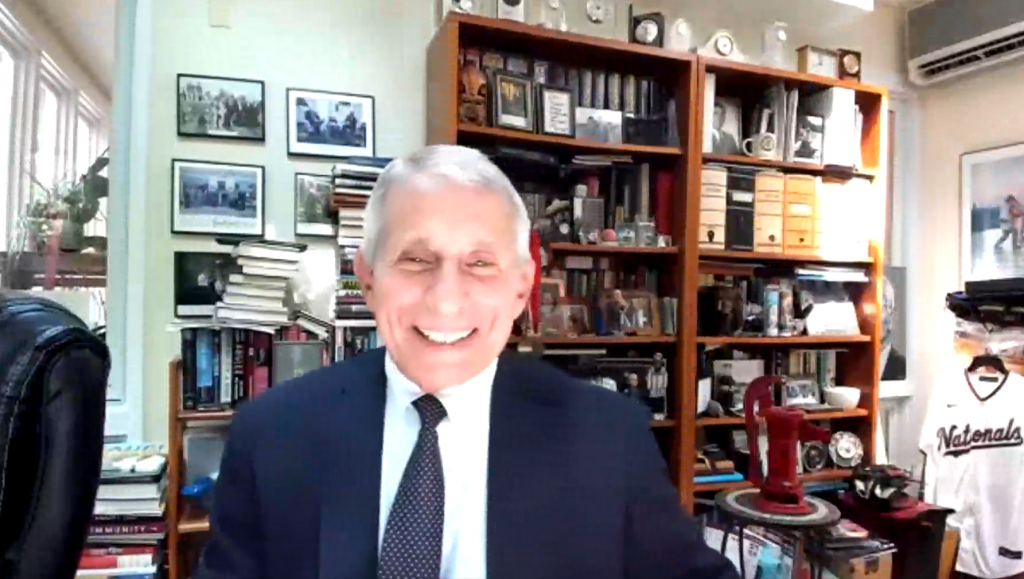
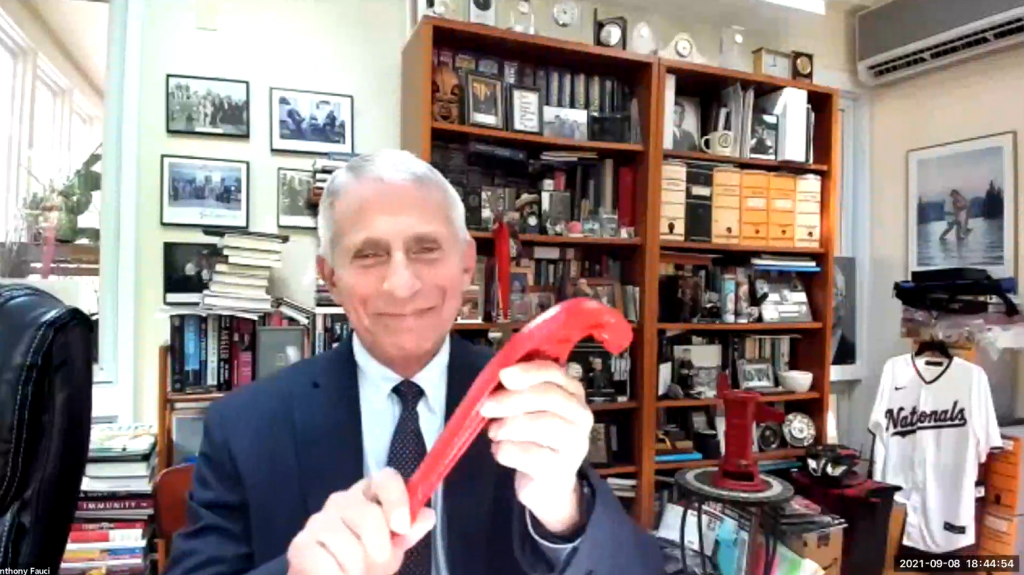
The John Snow Society Annual Pumphandle Lecture was given by Dr Anthony Fauci, Director of the U.S. National Institute of Allergy and Infectious Diseases (NIAID).
The recording can be found here
“The Greatest Missed Microscopical Opportunity?” by Paul Bingham was recently published by the Postal Microscopical Society. It is an excellent account of the discovery of Vibrio cholerae including the works of John Snow.
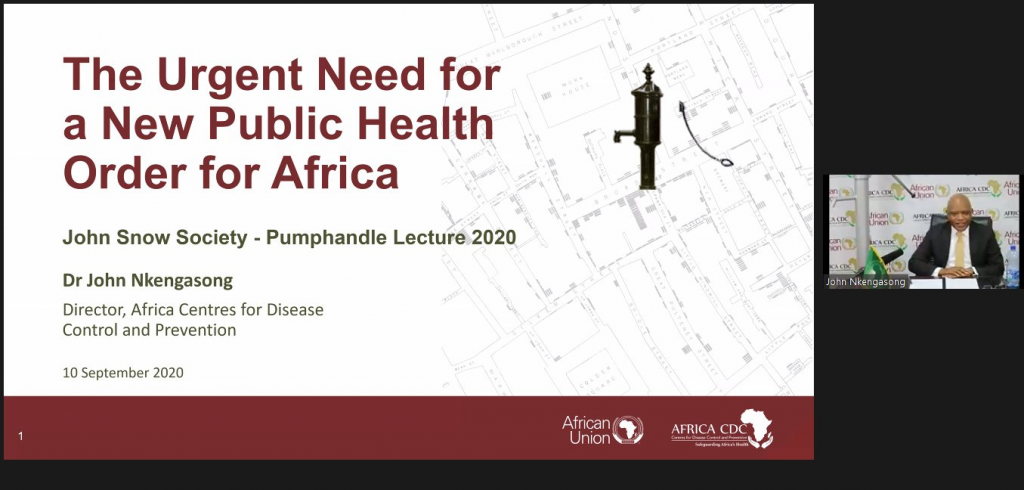
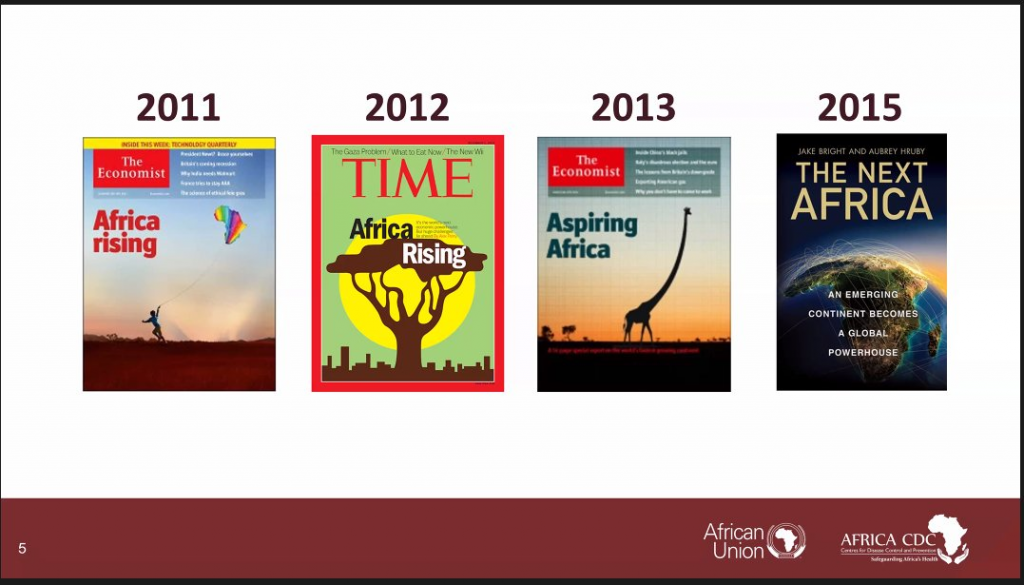
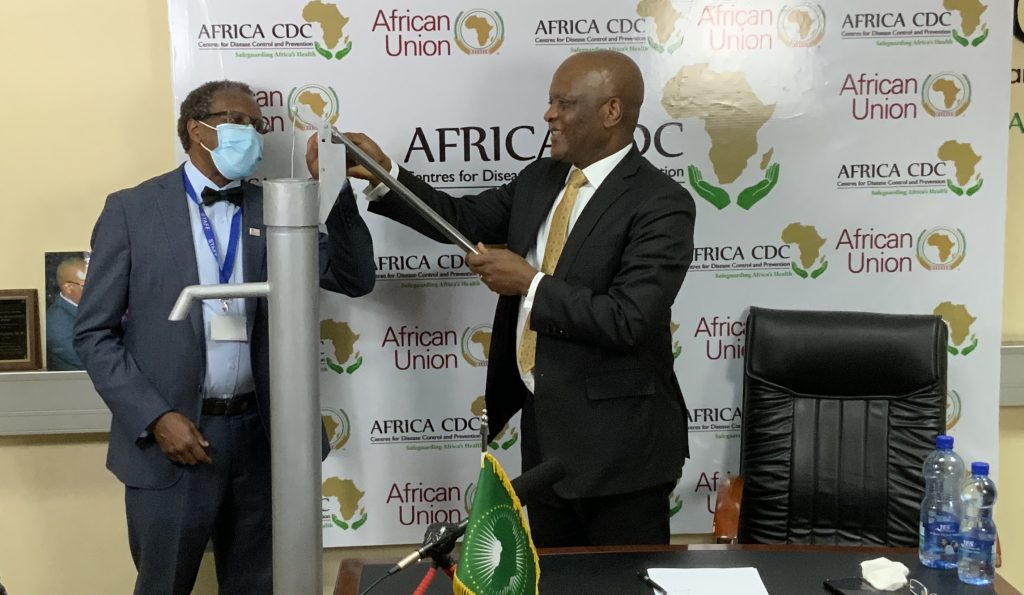
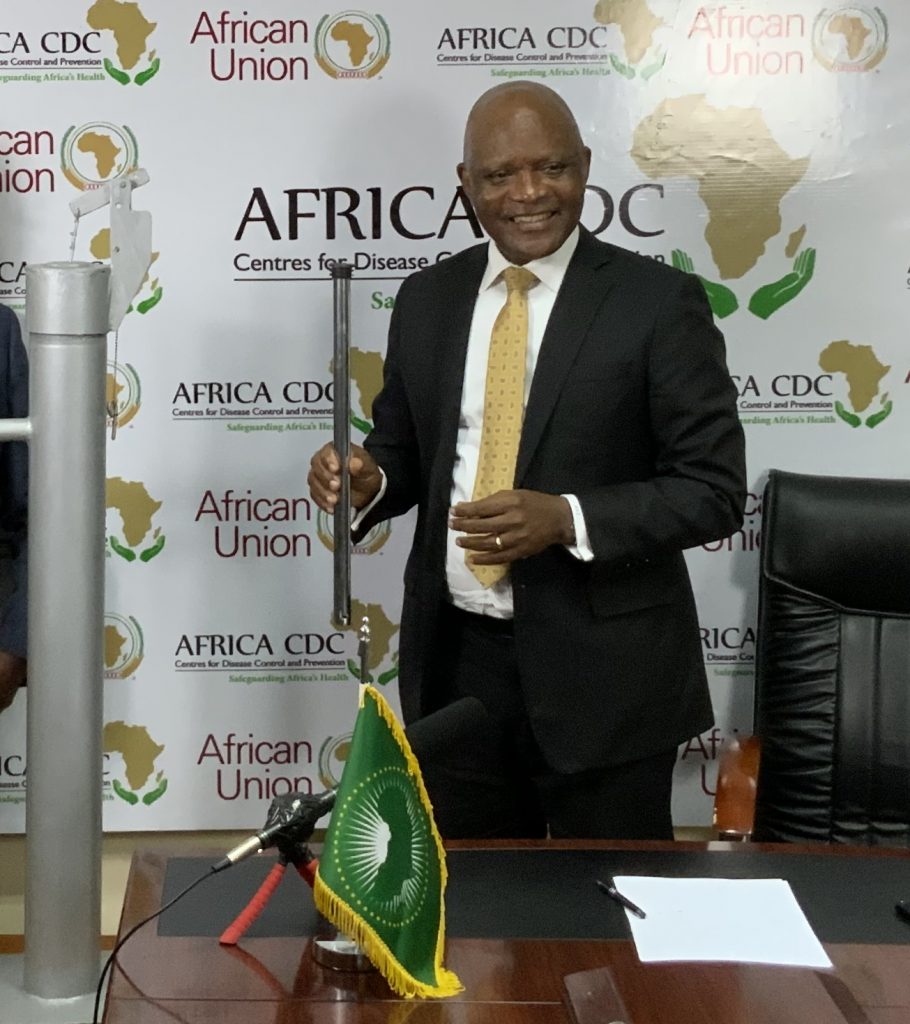
The 28th annual Pumphandle Lecture was delivered on Thursday 10th September 2020, by Dr John Nkengasong, founding Director of the Africa Centres for Disease Control and Prevention. Because of the Covid-19 pandemic, the lecture was delivered remotely, from Addis Ababa, Ethiopia, to a worldwide audience of more than 300 Society members and guests. The Speaker began by tracing the dramatic changes underway in Africa over recent years exemplified by expanding population, political commitments towards free trade and movement, and ambitious targets for economic growth by 2020 and 2063. Alongside these changes, the continent faces multiple health problems, including an increasing frequency of new and emerging infections, despite limited health institutions, workforce and budget. The Africa CDC was launched in 2017 to meet these challenges, and has set an ambitious goal of a “New Public Health Order”, involving
(1) the establishment and strengthening of continental and national public health institutions, (2) the development of a substantial public health workforce, (3) establishment of local manufacture of vaccines, therapeutics and diagnostics, and (4) the development of publicprivate-philanthropic partnerships. Each of these goals was illustrated with impressive examples of accomplishments in recent years, including the creation of Regional Collaborating Centres in North, West, Central, East and Southern Africa, which have in turn made major contributions in the response to the ongoing Covid-19 crisis. The speaker answered a series of excellent questions from the remote audience, and the vote of thanks was proposed by Dr Dilys Morgan.
Removal of the pump handle is a tradition of the Society, and so, because of the remote delivery of the lecture, Dr Martin Muita constructed a replacement pump from waste materials especially for
the occasion. The Speaker was invited to remove its handle, which he effortlessly did, to close the proceedings
A recording of the lecture can be found here
We had to wait a year, but the 2020 broadsheet is now available and as always packed with stories from around the world about John Snow and the society. Enjoy the read
Our biggest event of the year is coming up. We are excited to let you know that this year’s pumphandle lecture will be given John Nkengasong on 10th September 3pm UK time!
The lecture will be held remotely – please register here.
PUMPHANDLE LECTURE-PROMOTING MEDICAL SCIENCE IN AN AGE OF SCEPTICISM
4th September 2019
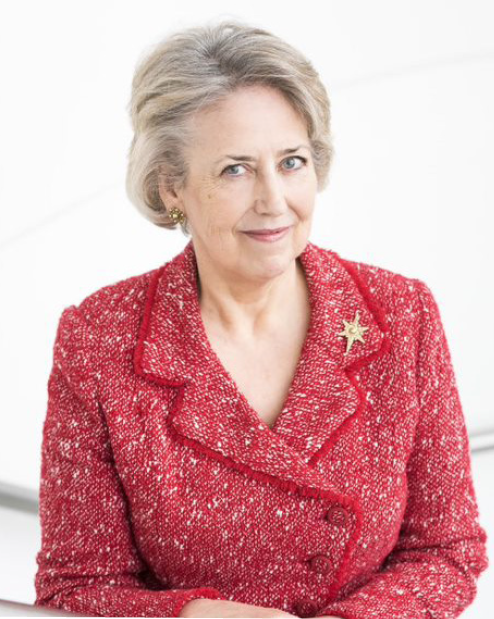
Transcript:
When I was asked to give the Reith Lectures in 2011 (I no longer usually mention alongside
Aung San Suu Kyi), I was flattered and accepted at once. There following months of
scribbling and scratching out, of trying to avoid platitudes and clichés and to say something
of interest, my hand held all along by a kindly and patient BBC editor. I was frightened by
the BBC’s prediction of audience size-10 million-and also made the error of foolishly looking
at the list of previous lecturers. That was thoroughly alarming.
There have been some echoes of that experience this time round. Jimmy Whitworth invited
me to speak to your Society. I was pleased and, not learning from the Reith precedent,
accepted at once. I then, again, looked at the list of previous speakers. That did little for my
self- confidence, comprising, as it did, an array of distinguished scientists. I pointed out to
Jimmy that I was a retired spook, and that my grip of science was feeble. Bored by the
amoeba (what was the point of that??), not to mention levers, fulcrums and petri dishes, I
had abandoned it all in my early teens. I could rabbit on for hours on intelligence, terrorism,
espionage and so on but was not sure I could hold your interest on anything even vaguely
scientific. I am still not! But his silver tongue, combined with the bribe of home-made cider
for my husband and medlar jelly for me, persuaded me that some people might turn out to
listen to me. So I should like to start by thanking you very much for doing so.
My title is “Promoting Medical Science in an Age of Scepticism”. Trying to be
accommodating I offered Jimmy the alternative of “Selling Science to the World.” That was
rejected. I think he thought that sounded too commercial. The one we agreed on is an
umbrella title, chosen so that I can talk about a range of issues which I think are relevant to
medical science, starting with some analysis of problems then moving on to some tentative
solutions:
Then some necessary tools:
I start with the political backdrop. We are in a world, not just a country, of political
instability. That instability has become acute at a time when we face the existential threat of
global warming. At the very time when we need governments to work together to tackle
joint problems, climate yes but also other problems, we are increasingly focussed on what
divides us, our differences not our agreements. Common ground is not sought and
compromise is mocked .International organisations are disregarded, underfunded and often
pilloried. The mechanisms for international co-operation are rusting over.
At the same time social discourse has become intolerant. Offensive rhetoric, which would
have recently been condemned, is too often standard. How else could we have successive
Foreign Secretaries labelling the European Union as similar first to Nazi Germany and then
to the Soviet Union? Being offensive gives evident pleasure to too many, a poor example
being set by our politicians. Manners no longer make the man. People in public life,
especially women, who do not retaliate in kind, apparently have to learn to live with serial
abuse or retire wounded from the fray.
And then there is the disregard for truth and for facts. It seems that many politicians have
given up telling the truth. The cynical among you may mutter under your breath that it was
ever thus but I disagree. I come from a political family. Both my father and grandfather on
my mother’s side were in the Cabinet. I know that both would be horrified by politics today
seeing it as a distortion of what that privilege, public service, should entail. It seems to me
to be increasingly tricky for anyone to judge where the truth lies when we are bombarded
on all sides by lies and false assertions. Indeed it may be that Michael Gove’s hyperbolic
claim that the British people had had too much of experts had some truth in it. At this stage
I should recommend the excellent Nature paper last month on how to help people assess
evidence, think critically and make informed choices. The government won’t read it.
That brings me onto public opinion. In the last three years since the referendum I have
avoided making any observation on public opinion having read all wrong the referendum
result and both the US and British elections. My only consolation is that very few pundits
made correct predictions. And that is the point. We don’t know enough about what people
believe, think and fear. We too often live in bubbles, in echo chambers listening to our close
family, friends and trusted colleagues. Elections, and even more so referenda, are a crude
indication of opinion and subject to myriad interpretations. But I shall narrow it down to
opinions on science on which we have some fresh, international evidence. In 2018
Wellcome commissioned Gallup to conduct an opinion poll by talking to a cross section of
people round the world, one thousand in each of 140 countries. Our purpose was to acquire
data to help researchers, funders, policy makers and all those who engage with the public
on science. I won’t go in detail through the mixed picture it presents but 72% of those polled
had a medium or high trust in science, and more, 82%, not surprisingly believed what they
heard from doctors rather than government. 70% thought that while they themselves had
benefitted from science, only about 40% of their compatriots shared that benefit. A third of
those polled in North Africa, Southern Africa, Central and South America felt excluded from
any benefits science can bring. And many of you will have seen the data on vaccines but for
example only 1% of those questioned in Bangladesh thought vaccines were dangerous while
33% did in France. We all know of cases where vaccinators, most recently in the Democratic
Republic of Congo, have been murdered on the basis that they were spreading rather than
trying to stop the disease, in this case ebola. But the poll shows that there is more
acceptance of and trust in vaccines in low and middle income countries than in wealthier
Europe. So we must never assume that what seems to us as self-evident, namely medical
research leading to treatments is a public good, is shared by all. Indeed a minority disagree
and not just anti-vaxxers. You may be interested to learn that we plan to commission
another poll next year. We shall retain the core questions on trust in science, confidence of
healthcare and benefit of science but expect to add some, for example on mental health
rather than vaccines and on global warming. We may add one on belief in evolution. But
that is as yet undecided. The main point is that we consider that we must continue to try to
find out more of international public opinion.
The third of my introductory themes is the choices for public expenditure. There are high
demands for public expenditure in all countries. Here we need to fund health services for an
ageing population, social care which is struggling, infrastructure, defence and security (I
would say that wouldn’t I), education including in the new skills we desperately need to ride
the wave of the technological revolution, housing, energy and above all more policies to
address the climate emergency. The list goes on and I have not yet mentioned the
tremendous value of diplomacy, even if our current government neither practises or values
it, and our aid programme. In the UK, faced by a no-deal Brexit, as you know better than me,
we are already losing the foreign nationals whom we need for our economy to thrive and
our science to flourish. The departures from our labs and from our universities and the
refusal of visas to those seeking short term visits, apart from those deciding not to come
here in the first place, are all having a chilling effect. As I said in the Lords before one of our
Brexit votes, unkindly but accurately described as “meaningless”, that is the vote, not, I
hope, my speech, some people do not want to be in the narrowly nationalistic country we
risk becoming. But we can’t counter this by wishing to go back to 2016. The government has
made some positive noises on science and immigration for scientists for which we should
give it credit but we should also recognise that it will make a number of expenditure choices
without being bothered by evidence. Fresh policies are regularly launched (this isn’t a new
phenomenon, some of us recall the poll tax) on the basis of whim, ideology, prejudice or
someone’s bright idea in the bath, without proper argument or analysis or piloting. If you
tried to argue for a change in clinical practice without some evidence you are unlikely to
make progress. Not so government. What that means, I think, is that we must never
presume government support, any more than public support, for the things we hold dear in
public health and medical science and which we assume are self-evident. There are plenty of
other things for the government to spend cash on. I give you one example. While it seems
obvious to me that there are few better cases for expenditure than education, including of
further education colleges as well as universities, there are those who think that the
universities in particular have money sloshing about which they don’t deserve or spend
responsibly. That came out in the Augar Review, which also reflected a wish to give more
central direction from government to universities.
So, to sum up so far, the analysis part of my talk.
Politic are unpredictable and unstable. Like many of you I suspect, I hope that what we are
seeing is transitory, that after these eruptions and shocks, we will return at some stage not
to a sunlit upland which never existed but to some political calm, respect for difference and
courtesy so that we can focus together on the big issues of our time including the things
that unite us. But I doubt it. I fear that we are seeing a new norm which gives me shaky
confidence in our or indeed most other large governments’ ability to tackle climate change
or prepare us for the technological revolution. The second Civil War in the UK looks like
continuing.
We know too little of what members of the public think. Not enough people have the tools
to help them discriminate. They are bombarded by information and it is a mammoth
challenge to tread a well-judged and critical path through the overload of facts and claims
including on medical science.
Finally governments feel free to introduce new policies without any information that they
are actually needed and may work. You will have spotted the Gadarene rush to legislate. It is
a myth that adding thousands of new laws, and new crimes, to the statute book makes us
safer and happier. It would often we better just to concentrate on implementation and
delivery of existing policies.
At this stage I need to apologise for adding to any gloom you may feel about events outside
this hall. It is my hope that the second half of my talk will be more positive.
So what does this mean for you and me, the wider British science community and our
international friends and colleagues? How should we react? What should we do?
Well we should try to avoid being too gloomy and cynical and wringing our hands. Look at
Greta Thunberg.
And my suggestions are personal and not meant to be prescriptive. There will be plenty that
we can do that I have not thought of but you have. But I do think we need
Greater political skill, to frame our arguments in varying ways, recognising that the
production of compelling data in support of an argument is generally insufficient to win it in
politics and even with the public. We need to develop more people who can describe
imaginatively the economic and societal benefits of medical science, not as sometimes
happens believing that they are so blindingly obvious that you would only be a fool not to
recognise that. We need to make the case repeatedly, to the government but also to others.
We need to be better at celebrating success. At the same time we should be careful to avoid
anything that looks a special pleading for our own interest rather than those we serve in
society. I have been a bit disheartened by those who have thought that it was enough to
state that Brexit is damaging British science, and that leaving without a deal will compound
that damage immeasurably. We need to come up with mitigating policies, with reassuring
our international colleagues, with building new networks and strengthening old ones. In
other words we have to do what we can to shore up and protect what we value because we
can’t depend on Government to do so. In the same way that we should plan for continued
global warming while doing everything in our power to advance the dramatic reduction in
emissions that is essential, we need to do what we can to minimise the damage to science
from Brexit by constructive suggestions and proposals which we can do without
government.
And when politicians do something which looks positive, we need to praise and encourage. I
cite two examples, the much increased investment in UKRI and the recent announcement of
visa policy for incoming scientists. If we never acknowledge or thank, admittedly sometimes
through gritted teeth, largesse may not come our way again. Imagine a conversation within
government
“But we gave them £x last time round and the response was a series of grumbles. Don’t let’s
bother this time round.” You may believe that funding decisions are made with great care. If
you do I am afraid that you are wrong.
In anticipation of a reaction that we must be true to ourselves, even if others are not, I
agree, and I am not arguing that we should muzzle our protests but in sticking to our
principles we need to recognise, although not necessarily accept, the wider context of
today’s political realities, and the demands on public expenditure when the pound is
plummeting.
And by the way think yourselves of going into politics. In the Lords there are some who are
outstanding scientists. We desperately need some in the Commons.
That brings me to public engagement with science. This has never been more important in
my view. The public vote and are patients and we need their help both in supporting
investment in medical research and in participating in it. And we need them to trust us with
their data. When I joined Wellcome eleven years ago (don’t worry –I shall be gone soon!)
some of the public engagement which we then funded seemed to me formulaic and
patronising, one-sided- “here you are”-rather than fully joint and participatory. I think that
we have all become wiser, in particular in working with the communities we serve in
partnership so that we strive together to generate social benefit and improve health, rather
than assuming that we all know what they need. It is hard not to live in an isolating bubble
as I said earlier. We need to start early. If you have not seen it do look at Wellcome’s on-line
resource to help primary school teachers sow excitement for science. It’s called “Explorify”. I
recently went to a school in Camden, close to Wellcome, which is using it. I met a class of
seven year olds, few of whom spoke English as their first language. Sitting cross-legged on
the floor, proudly wearing their lab coats, they were entranced by the lesson. When I asked
them how many intended to become scientists all hands shot up. If I had had a lesson like
the one they had I would have learned that science is exciting, creative and imaginative, as
we discover more about the world we live in and ourselves. It was fun. As it was I drew the
amoeba. Our Project Enthuse, done with the Department of Education and business, offers
high class CPD to science teachers and their technicians. And universities are doing some
brilliant outreach work with schools in their communities. At Imperial, where I was the chair
of the council, we had labs which were fully booked by local schools who came in to engage
with our staff and students. At the other end of the scale I have sat under a mango tree in
Kenya and been questioned by elected representatives of a cohort. I’ve watched street
theatre with a health theme in the slums of Mumbai and listened to a male voice choir in
Kwazulu Natal, advocating, if I remember contraception, all funded by us. So we need to go
on bursting the bubble, listening and responding to what people tell us they want. And we
should not be in the least bit afraid to try things out and fail.
The third of my subjects on which we can make a difference, regardless of government, is
science diplomacy. By this I mean ignoring, as far as possible, the disruption caused by all
the things I mentioned earlier, the erosion of international organisations, the increasing
divisiveness in international relations and trade, abusive public discourse, an absence of
truth and barriers to discovering it, and the reluctance to meet halfway. But we don’t have
to leave diplomacy to the professionals, although I have a high regard for those in the FCO
who are still permitted to practice it. The science community is international, its
collaborations extensive, its links worldwide, no more so than here at the London School of
Hygiene and Tropical Medicine. You have made those bridges for years. In your
commitment to global health you have been the exact opposite of narrowly nationalistic,
one of the reasons I am proud to stand here tonight. It was very refreshing when I arrived at
Wellcome to find that it was staffed by people from all over the world. In my last job,
naturally enough we could only employ British citizens and not new ones as we needed to
be able to vet them throughout their lives. I realise now that while we were good at
diversity, for example topping the Stonewall index in 2016, after my time, we missed the
diversity that you get from working with someone in or from Belarus or Myanmar or
Senegal. The British Museum can ease international hostility by putting on an exhibition, as
it is about to, called “Inspired by the East-how the Islamic world influenced Western Art.”
You too have the capacity to promote wider understanding through science in many
different ways, large and small. With governments putting up walls and barriers, richly ironic
after the years when we spent billions trying to tear down the Iron Curtain, we can and must
surmount them. If we are excluded from some networks we must show our values and our
principles in others. We need to counter together the view that the UK does not welcome
foreigners or wish to work ever more closely with them.
My final point is leadership. There is no template and we need a range of leaders with
different skills. Above all we need scientists who wish to explore and learn how they can
lead in their field and beyond. This is now well-recognised with the provision of various
courses, most recently a highly regarded one designed and run by the Academy of Medical
Science. We need people to head Institutes, Wellcome Trust Centres, Universities, the MRC
and other parts of UKRI, act as science advisers to government departments, even run
Wellcome, not to mention doing all those things elsewhere in the world. We need scientists
on the boards, not just of bioscience start-ups but as non-executive directors in FTSE
companies. And, as I have said already to lead in parliament. I expect that suggestion to
have fallen on very stony ground as it always does, but we desperately need people of
principle and integrity from a science background to go into politics. Above all we shall
continue to need those who can anchor science and medical research in the centre of our
public life, who are excellent communicators and able to find their route through the
minefields of today’s world. And promote the medical research which is vital to our health
and well-being.
We also need leaders who are passionate about improving the way we do things,
discovering breakthroughs for human health but also handling change, priorities, pressure
and uncertainty.
You will have your own thoughts on leadership having observed those you can learn from
and those whose behaviour you wish to avoid. I have always been hostile to the idea of role
models largely because it is my gender which is usually told it needs them. But we all
observe and I have tried to copy subtle and skilled leadership while rejecting authoritarian
approaches. There are those who say that leadership is lonely. That is only true if you stick
yourself on a pedestal, to which suitors come to hear from the oracle. If you realise that you
are privileged to lead and that many junior to you will be cleverer than you with better ideas
you won’t be lonely at all. It is after all a strength to admit ignorance not a weakness.
Leadership can be practised at all levels. How you support and steer a junior technician may
be as important in the long run as tramping along the No 10 passages to try and twist a
Prime Ministerial arm. It is never too soon to hold up a mirror and think about how you
might lead, seeking frank feedback from your colleagues and own leaders.
That brings me to the rewards of coaching and mentoring junior colleagues. Thanking,
praising, encouraging are all important and are too often overlooked. Leaders need to stop
people working as well as inspire them. They need to stimulate and welcome challenge and
dissent. They need to listen. It helps if they have humour and use it for perspective and to
lighten pressure. They must challenge bad behaviour, give honest and constructive feedback
and not duck the difficult. The mantra” Our People are our greatest Asset” needs to be more
than a mantra. Leaders need to be fair but that does not mean treating everyone the same.
Different people need different leadership, whether leaving them alone to get on with
things or offering lots of reassurance. And leaders need to adapt to different circumstances
as we are all forced to do now with a no-deal Brexit looming.
Before I end I would just like to touch on research culture. Some of you will recently have
seen a letter sent by Chris Whitty, Jeremy Farrar and Fiona Watt, addressed to ViceChancellors, Deans and Principals of Medical Schools and universities. It is headed
“Repeated failure by certain institutions to support trainees and mid-career staff.” It is
strong stuff and it reflects a broader concern that while of course, there are outstanding
institutions, individuals and departments who nurture medical scientists, some ignore the
obligations they were contracted to meet when they secured funding. We cannot hope to
influence politicians, work with the public, conduct science diplomacy or lead if bits of our
own house are severely neglected. Apart from anything else the talented men and women
who we want to stay in this field and become the leaders of the future, ready in turn to
promote medical science, will not do so if they are not encouraged and helped.
I do not want to end on too downbeat a note.
There are lots of things to celebrate and I remain optimistic. In my lifetime I have seen
staggering medical advances, many of them down to people like you with a public health
focus, millions brought out of poverty, greater acceptance of difference, of race, of gender,
of sexuality, less stigma attached to mental illness, an explosion in this country of higher
education and very many things to cherish and celebrate. Despite the climate emergency
which we are only half facing, and despite regression on some of our advances, I remain an
optimist and believe that this period too will end and that scientists, through politics,
engagement, diplomacy and leadership will be key to that. You only have to listen to a group
of young scientists, anywhere in the world, describing their work in a poster session, to
share my optimism.
When I finished laboriously typing this speech (I refused to learn typing fifty years ago for
fear of a career as a secretary) my husband asked me if I was happy with it. I said no. But I
hope that I have not too much lowered the standard of the John Snow lectures and I am
grateful to you for not falling asleep.
As announced today in the 2019 Broadsheet, the 2019 Pumphandle Lecture will be held at 17.30 on Wednesday 4th September 2019 at the London School of Hygiene and Tropical Medicine.
The lecture will be given by Eliza Manningham-Buller, Chair of The Wellcome Trust and Co-President of Chatham House, and ex-Director General of MI5. She will be speaking on ‘Promoting medical science in an age of scepticism’. The lecture will start at 5.30pm on Wednesday 4th September 2019, in the John Snow Lecture Theatre at the London School of Hygiene and Tropical Medicine.
This is an invitation-only event open to John Snow Society members. Please register in advance here. Please do not share event details on social media or via other channels until after the event.
The lecture will be followed by the Society’s Annual General Meeting, held in the John Snow Public House (at the corner of Broadwick and Lexington Streets, in Soho) to which all are warmly invited.
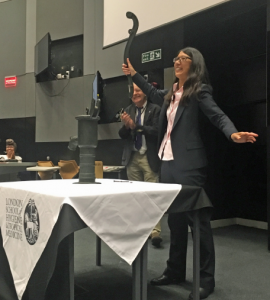
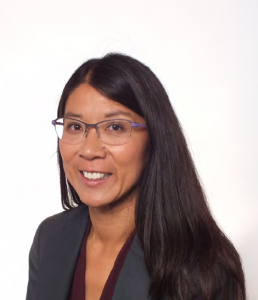
The 26th Annual Pumphandle Lecture was delivered on Thursday 6thth September 2018, by Dr Joanne Liu, International President of Médecins Sans Frontiers / Doctors without Borders.
Dr Liu’s presentation described, and then drew lessons from, three recent health crises in which MSF has been prominently involved, and which have captured global attention: Ebola, the Kunduz attack, and the forced displacement crisis. She emphasised that each of these crises has involved fear at several levels, and that fear complicates motives and detracts from humanitarian ideals crucial to an appropriate health response and to society at large. Her accounts reflected her own personal involvement in each of these issues, and included moving photographic images.
The West African Ebola epidemic, which began in 2014, caught the world by surprise, being so much larger than any of the previous outbreaks of the disease. MSF set up treatment centres based upon its previous experience but these were soon overwhelmed by numbers – she described a treatment centre which could only open its doors for 30 minutes a day, just long enough to dispose of the bodies of those who died overnight and refill the beds. She spoke of the difficult messages early in the response – telling people that there was this disease, with case fatality rate above fifty percent, for which there was no treatment – of course people were afraid to go to a hospital just to die… and so they remained at home infecting others. The world woke up when a few cases were repatriated to western countries – and it soon became seen as a threat to global security. That lead to the unusual call for infrastructure assistance from military agencies. Though there was no military intervention, just the fact that MSF asked for military assets was evidence that something was deeply wrong. Among the lessons were the need to streamline research and development under epidemic conditions. Dr Liu also reflected on the irony that Ebola attracted such a level of attention, though tuberculosis, which kills so many more, is not treated with urgency by the global community.
She then turned to describe MSF involvement in Afghanistan, in particular a large trauma hospital built in Kunduz, in the north of the country. It served people of all political persuasions, and had hosted 15,000 surgical operations and 17,000 emergency visits since its construction in 2011. The hospital was bombed and largely destroyed by airstrikes by so-called coalition forces on the night of 3rd October 2015. Though the Kunduz bombing was declared to have been a mistake, Dr Liu drew a parallel with the policy of President Assad in Syria to target health facilities in areas opposing his government, declaring it a crime to bring health care to an opposing side. This is a perversion which must be challenged at every level: the doctor of your enemy is not your enemy.
Finally, she discussed the widespread crisis of forced displacement and refugees – some 68 million people in today’s world, including half the population of Syria. She described camps for displaced persons in Lesbos and in Libya as among the most shocking scenes she had witnessed in the world… associated with the desperate efforts of people to escape dreadful circumstances in their home countries, leading to every sort of abuse and too often to death by drowning in the Mediterranean Sea. This reflects fear in both directions – the understandable fear of people to remain in their homes … met by the paranoid fear of the world to which they wish flee. The outcome is a disaster for humanity.
These descriptions amply illustrated the theme in the lecture’s title: the cost of fear. Dr Liu closed by encouraging epidemiologists in the audience to collect “damning data”, to illustrate and expose the circumstances such as she had described in order to change opinions and policies.
The vote of thanks was proposed by Professor Jimmy Whitworth, and Dr Liu was invited to remove the handle of the pump to close the proceedings. Society Members then adjourned to the John Snow Pub in Soho for the Annual General Meeting of the Society.
This year’s Broadsheet is now available.